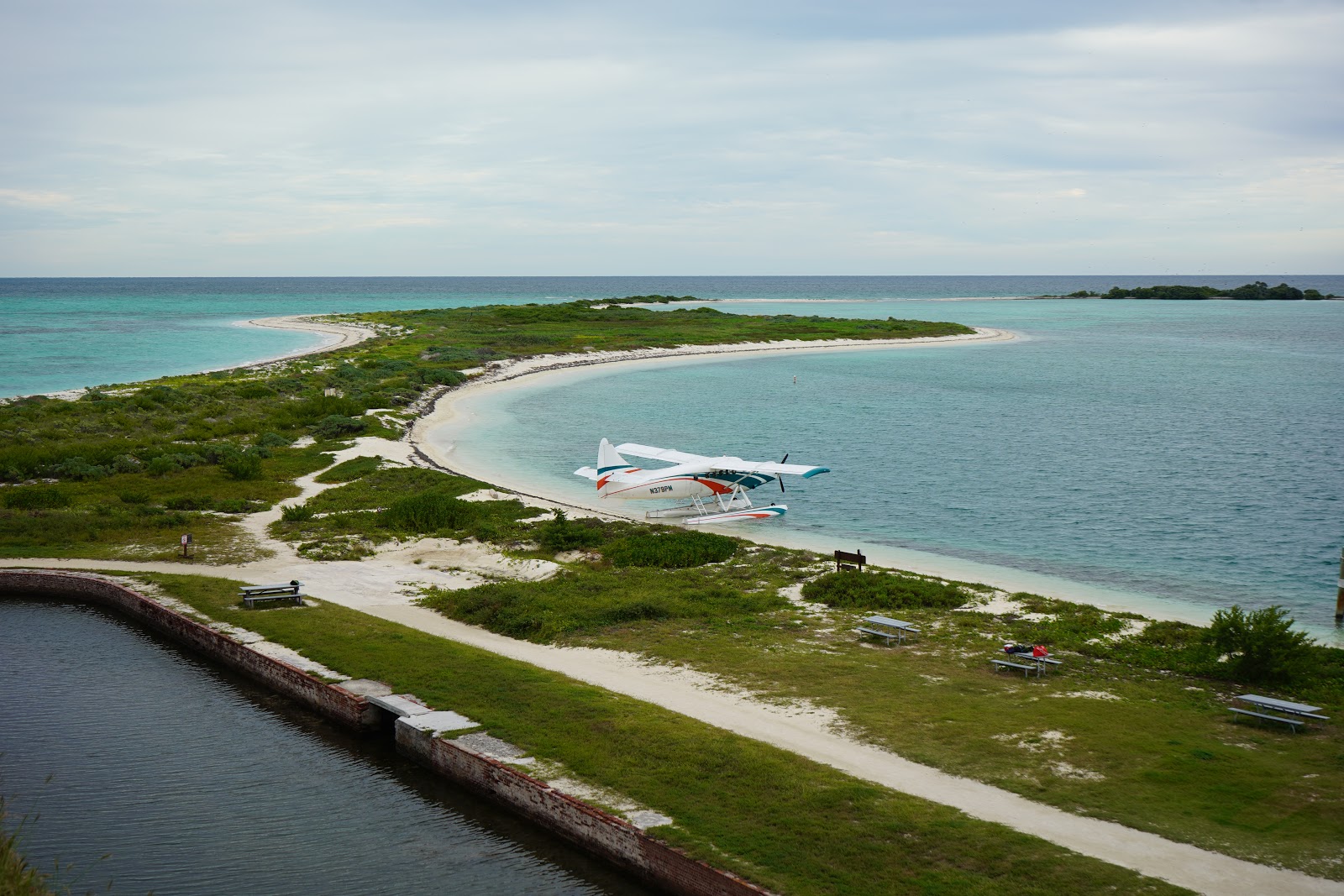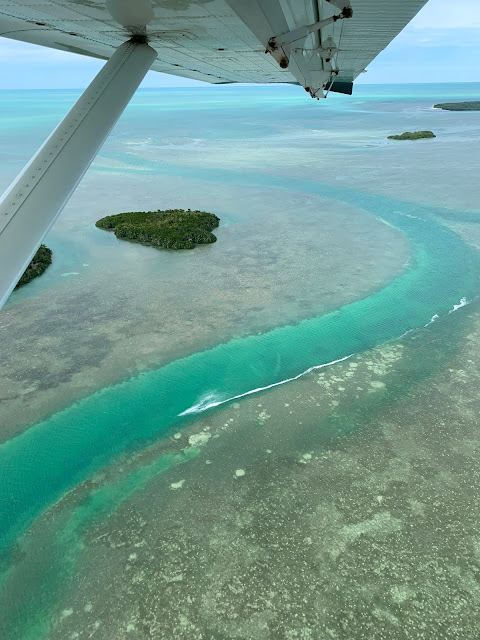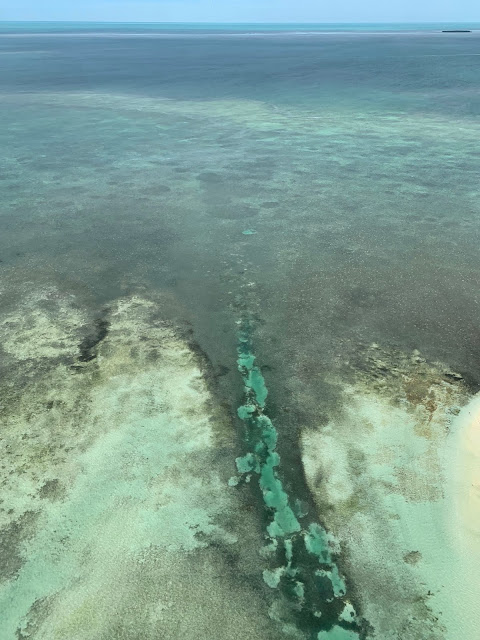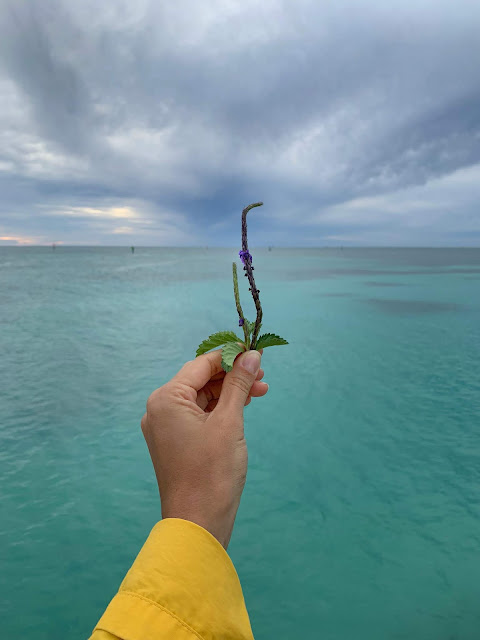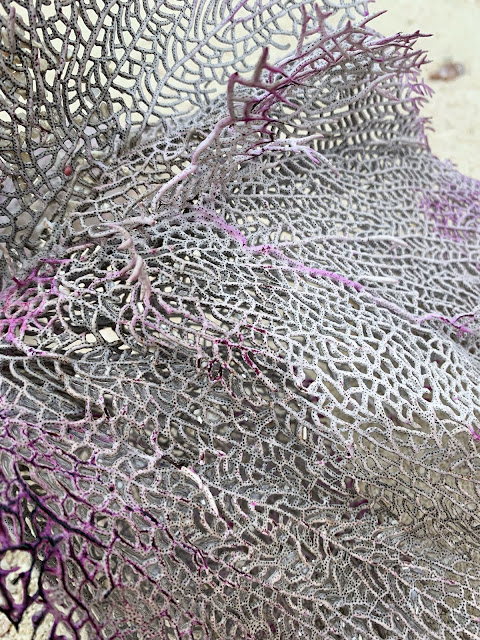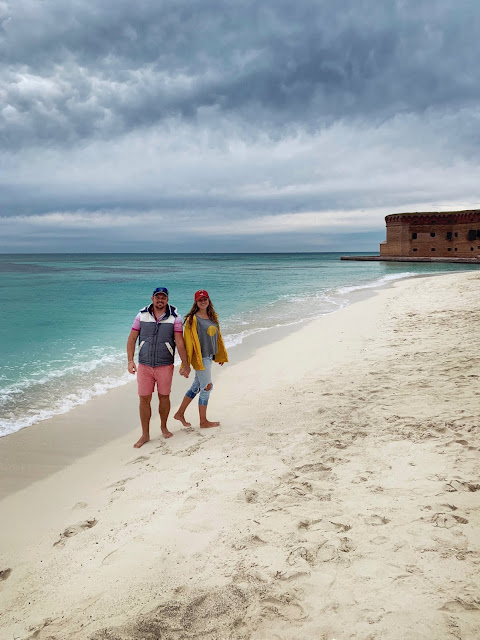Dry Tortugas National Park, one of the least visited places in North America, is finally crossed off our Bucket List!
The adventure went like this:
4 hours driving from Miami
0.5 hours flying from Key West
3 hours discovering Dry Tortugas
0.5 hours flying back to Key West
2 hours dinner on Key West
4 hours driving back to Miami
Does it sound like something you might jump into? Or too much of a hustle for a teeny tiny island with a fort on it, occasional turtle occurrence and a few bushes with birds?
Well, before I get an answer, let me show a few pictures and throw in a few facts to fancy your imagination and whet your appetite...
The cluster of 7 islands, 70 miles west of Key west, is the the true end of the Keys. It became National Park only recently, in 1992. The park stretches about 100 acres, but 98% of it is under water.
The archipelago was originally named Las Tortugas by the Spanish explorer Juan Ponce de Leon, because of the abundance of sea turtles nesting in the area. Later the name was changed for Dry Tortugas indicating there is no fresh water on the islands. It has nothing to do with turtles being dry.
Turtles provided food for marines, pirates and locals of the keys for hundreds of years. Green turtle soup was a popular dish and part of trade to the northern states. These years of hunting depleted the population of turtles drastically and now they are on the Endangered Species List.
Besides the turtles the islands are home to about 30 species of corals and provide habitat to migrating birds. Almost 300 birds species have been spotted on Dry Tortugas!
The best time to witness wildlife is April through October, when turtles are nesting and birds migrating.
Few years after Spain sold Florida to US, Dry Tortugas was chosen as a place for a naval station to suppress piracy and protect trade. Construction of Fort Jefferson began in 1846 and continued over 30 years. It encountered many obstacles and was never finished.
During Civil War the fort was used as military prison.
What once was a little bustling town of 400 people, today (apart from being a National Monument) is stationary home to 8 rangers living on the island. They generate their own power (there’s no cellular coverage) and make water using desalinization plant. Surprisingly, they also still use one of the original cisterns that collects rain water, filters it and stores for usage as drinking water. Once a week a boat called “Fort Jefferson” brings food supply.
Walking on the fort’s walls I was imaging how hard it must have been to build something so massive located that far from the big land.
How to get to Dry Tortugas:
- Ferry
- Seaplane
- Private yacht
Each has its own perks and downsides (like saving a buck with a ferry ride, but ending up with too many people on the island) and depends on your budget and intentions, whether you plan to snorkel, dive, watch birds or simply hang out. There’s also a camping ground for overnight stay.
We took a 4 hour afternoon seaplane excursion which suited us nicely. I found the flight a bit overpriced, but we enjoyed there were just 10 of us climbing fort’s walls, not 250. The park is not too big and on a cold day, without snorkeling, 2 hours seemed a decent amount of time to explore it. (totally different story if you plan to snorkel or dive)
Should I mention the views were spectacular? Shoals, islands, reefs, lagoons, myriads of patterns, shades and shapes spotted on the way to Dry Tortugas made me forget we were still on planet Earth.
The Dry Tortugas trip was my 2-year anniversary present for my husband. He reported he loved his present and I surely loved "gifting" it. Win win!
Now.
Would you go for a day trip like this?




